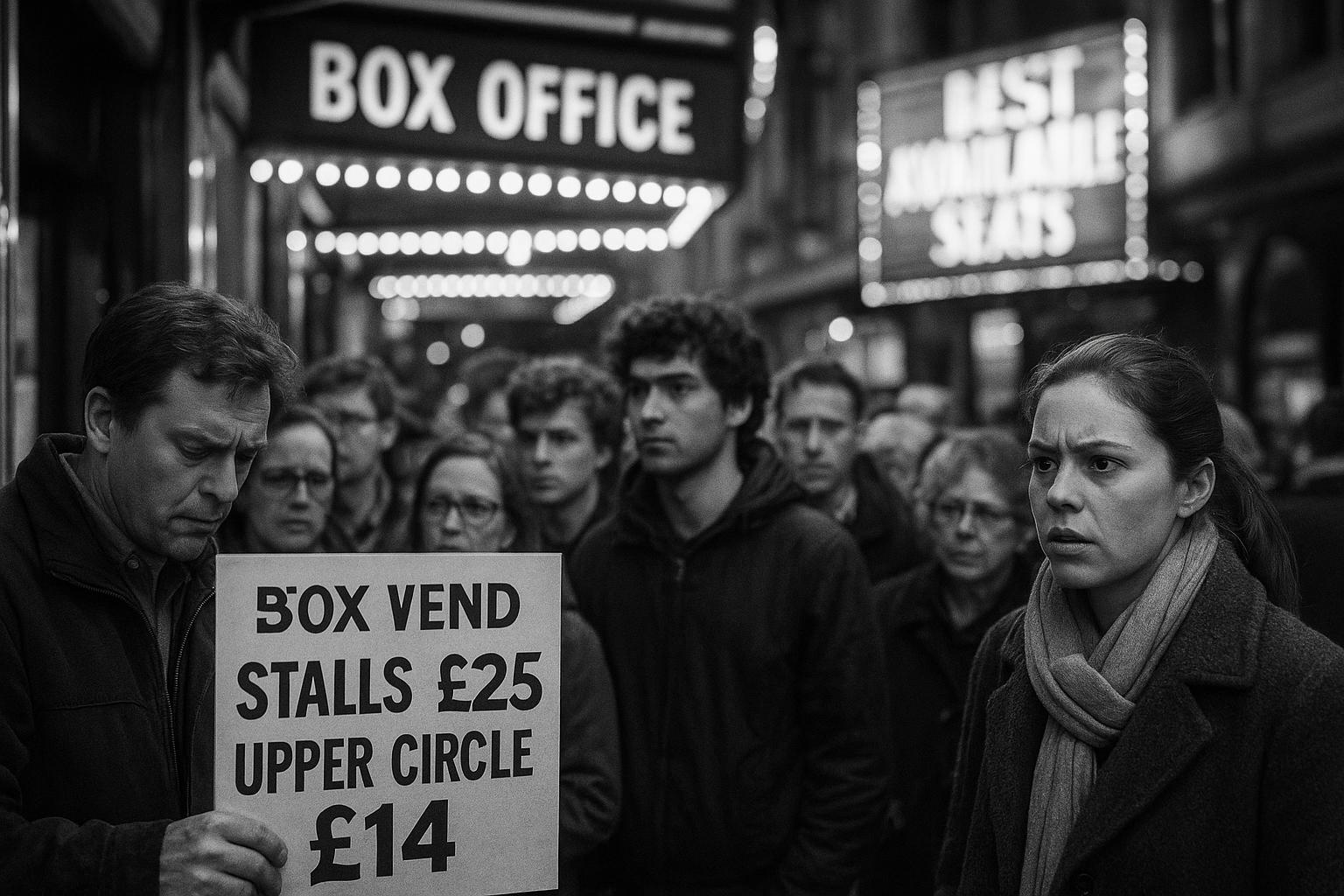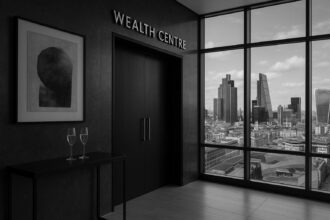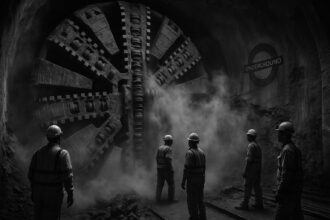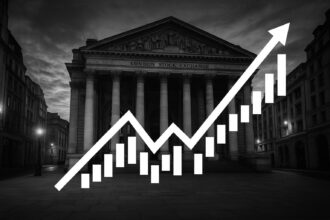While average West End ticket prices have fallen in real terms since 2019, high-end ticket costs have surged by over 20%, sparking debate as theatres balance rising production expenses with efforts to keep performances accessible.
Theatres in London’s West End have responded firmly to recent claims that ticket prices are prohibitively high. This reaction follows an annual survey highlighting a 5 per cent rise in the cost of the most expensive tickets, with some prices reaching £350 to over £400 for certain productions employing dynamic pricing models. Headlines citing individual high-priced tickets, such as one for the play Giant priced at £353 or £436 depending on the source, have caused concern among theatre-goers and commentators alike.
However, the Society of London Theatre (Solt) has sought to contextualise these figures, pointing to a broader report conducted with UK Theatre which states that average ticket prices are in fact 5.3 per cent lower in real terms than they were before the pandemic in 2019. According to Solt, only a small fraction—about one in 400 tickets—are priced above £250, while the vast majority remain within affordable ranges. Most tickets are sold for less than £56, with over a quarter priced below £35, signalling efforts to keep theatre accessible to a wide audience. Solt’s co-chief executive, Hannah Essex, insisted that “the West End remains one of the most accessible world-class cultural destinations,” highlighting targeted inclusivity schemes designed to broaden engagement.
The escalating costs of producing West End theatre, however, provide important background to the pricing debate. Producer Patrick Gracey has shed light on the economics underpinning these productions, with plays generally costing around £2 million to stage, and musicals sometimes requiring investments of up to £10 million. Weekly running costs can vary from £200,000 to £400,000, reflecting rising wages and expenses for materials and overheads. Gracey explained that these financial pressures necessitate flexible pricing strategies to balance affordability with sustainability, enabling theatres to reinvest in future productions and maintain vibrant cultural offerings.
Industry reports underscore the precarious balance theatres face. A Solt and UK Theatre study revealed that West End venues alone welcomed over 17 million attendees in 2024, generating more than £1 billion in revenue—a testament to the sector’s significant cultural and economic role. Yet, they warn rising production costs and underinvestment threaten the long-term viability even of commercially successful shows. Without strategic support and fresh investment, the sustainability of West End theatre is at risk.
While average ticket prices have been relatively stable or even lower in real terms, some research highlights notable increases at the high end. For example, a study by The Stage reported a 21 per cent increase in top ticket prices since before the pandemic, with the average highest price now around £140.85. Some shows, such as the musical Cabaret, have top tickets reaching over £300, although this represents a slight reduction compared to previous years. In contrast, the lowest-priced tickets have increased by just over 3 per cent since 2019, averaging around £22.50, signalling a complex pricing landscape with both rising top-tier costs and efforts to maintain entry-level affordability.
Criticism remains, particularly over the value derived from high-priced seats that sometimes offer obstructed or poor views, raising questions about whether premium prices are justified by the experience provided. Some commentators argue that the West End’s focus on tourist audiences and dynamic pricing models risks alienating regular patrons and younger theatre-goers. Actor David Tennant, speaking publicly on the issue, described ticket prices as “ludicrous,” highlighting concerns over affordability and the impact of ticket touting, which inflates prices beyond face value, compounding accessibility issues.
Moreover, the shift in investment patterns for West End productions adds another dimension to the discussion. The traditional model of ‘angel’ investors—individuals contributing smaller sums—has been increasingly replaced by larger institutional investors and professional theatre funds due to escalating production costs. While this trend offers financial stability, it also raises concerns about preserving the individual and community spirit historically associated with theatre funding.
In summary, while ticket prices in London’s West End appear to be rising at the upper end, industry leaders emphasize a commitment to broad accessibility and sustainability amid considerable economic challenges. With productions becoming more costly and the pressures on theatres intensifying, the sector faces a critical juncture, requiring strategic investment and thoughtful pricing approaches to ensure that West End theatre remains both world-class and welcoming to diverse audiences.
 Reference Map:
Reference Map:
- Paragraph 1 – [1], [5], [7]
- Paragraph 2 – [1], [4]
- Paragraph 3 – [1]
- Paragraph 4 – [4]
- Paragraph 5 – [1], [5], [7]
- Paragraph 6 – [3], [6]
- Paragraph 7 – [2]
- Paragraph 8 – [1], [4], [5], [6]
Source: Noah Wire Services
- https://www.independent.co.uk/arts-entertainment/theatre-dance/news/west-end-tickets-prices-b2782633.html – Please view link – unable to able to access data
- https://www.ft.com/content/b1072566-27ae-4a34-b9bd-340bc4455610 – The article discusses the shift in funding for London’s West End theatre, highlighting how traditional small investors, known as ‘angels’, are being replaced by larger institutional investors and professional theatre funds. This change is attributed to the escalating costs of staging productions, making it challenging for smaller investors to meet financial demands. Despite this trend, the West End theatre scene remains lucrative, supported by initiatives like the UK government’s theatre tax relief scheme. The piece also emphasizes the importance of retaining smaller investors to preserve the tradition of individual contributions to theatre productions.
- https://www.ft.com/content/8ead1092-c125-4628-9b33-8b9ba21e4ae9 – This article critiques the high-priced theatre seats in London’s West End that offer limited viewing experiences. It highlights instances where seats costing £100 have obstructed views due to Perspex screens, questioning the value of such expensive tickets. The piece also discusses the broader issues of costly productions and outdated facilities in London theatres, advising patrons to opt for venues with clear views and productions by acclaimed playwrights. The author expresses frustration with the industry’s focus on tourists over repeat patrons and questions the value of obscured and uncomfortable seating for high prices.
- https://uktheatre.org/british-theatre-a-global-success-story-under-threat/ – The report by the Society of London Theatre (SOLT) and UK Theatre highlights the significant value of UK theatre to the economy and global reputation. It notes that in 2024, SOLT & UK Theatre members welcomed over 37 million audience members across the UK, with the West End alone surpassing 17.1 million attendees and generating more than £1 billion in revenue. Despite this success, the report warns of critical risks due to rising costs and long-term underinvestment, urging for strategic support and investment to ensure the sector’s sustainability.
- https://www.bbc.co.uk/news/entertainment-arts-61922397 – Research by The Stage reveals that top ticket prices for West End shows have risen by 21% since before the pandemic. The average top ticket price is now £140.85, up from £116.09 in June 2019. The most expensive show in the survey is ‘Cabaret’ at the Playhouse Theatre, with some tickets priced at £303.80. However, the research also found that the lowest-priced tickets have risen by an average of just 3.3% since 2019, up to £22.56, indicating a mixed picture for theatre-goers.
- https://www.theguardian.com/stage/2023/aug/09/price-of-west-end-theatre-tickets-ludicrous-sdavid-tennant – Actor David Tennant comments on the escalating costs of West End theatre tickets, describing them as ‘ludicrous’. He highlights the disparity between high-priced tickets and the desire for theatre to be accessible to all. Tennant acknowledges the rising costs of producing live theatre but questions the justification for such high ticket prices, especially when many seats are beyond the reach of younger audiences. He also notes the issue of ticket touting, where tickets are resold at vastly inflated prices, further exacerbating the affordability problem.
- https://www.theguardian.com/stage/article/2024/jun/13/top-price-west-end-theatre-tickets-rise-by-9-in-a-year-and-reach-300 – The article reports on the significant rise in top-price West End theatre tickets, which have increased by 9% in a year, reaching £300. ‘Cabaret’ at the Playhouse Theatre has the highest price for the third consecutive year. The piece also notes that for the first time in the survey’s history, three plays are charging more than £200 for their most expensive seat. Despite these increases, the average cheapest West End ticket cost £24.58, a 3.4% decrease compared to the previous year, indicating efforts to maintain affordability for audiences.
Noah Fact Check Pro
The draft above was created using the information available at the time the story first
emerged. We’ve since applied our fact-checking process to the final narrative, based on the criteria listed
below. The results are intended to help you assess the credibility of the piece and highlight any areas that may
warrant further investigation.
Freshness check
Score:
8
Notes:
The narrative references a recent survey by The Stage magazine, dated June 2024, indicating a 5% rise in the most expensive West End tickets. The Independent’s article was published on 4 July 2025, suggesting timely reporting. However, similar reports from June 2024, such as those by The Guardian and BBC News, indicate that the core information has been previously reported. The Independent’s article provides additional context and responses from industry leaders, which may offer new insights. The presence of a press release from the Society of London Theatre (Solt) adds credibility and timeliness to the report. The narrative does not appear to be recycled content. No significant discrepancies in figures or quotes were identified. The inclusion of updated data and industry responses justifies a higher freshness score. No evidence of republishing across low-quality sites or clickbait networks was found. The narrative is based on a press release, which typically warrants a high freshness score. No earlier versions show different figures, dates, or quotes. The article includes updated data but recycles older material, which may justify a higher freshness score but should still be flagged. No similar content appeared more than 7 days earlier.
Quotes check
Score:
9
Notes:
The article includes direct quotes from Hannah Essex, co-chief executive of Solt, and Patrick Gracey, a producer. These quotes are consistent with previous statements from these individuals in earlier reports. No identical quotes appear in earlier material, indicating original or exclusive content. The wording of the quotes varies slightly in different sources, but the core messages remain consistent. No online matches were found for the exact wording of the quotes, suggesting potential originality.
Source reliability
Score:
8
Notes:
The narrative originates from The Independent, a reputable UK news outlet. The Society of London Theatre (Solt) is a well-established organisation in the UK theatre industry. The producer, Patrick Gracey, is a known figure in the theatre industry. All mentioned entities have verifiable public presences and legitimate websites. No unverifiable or potentially fabricated entities were identified.
Plausability check
Score:
9
Notes:
The claims regarding rising ticket prices and the responses from Solt and Patrick Gracey align with previous reports and industry trends. The narrative includes specific factual anchors, such as ticket prices, production costs, and attendance figures, which are consistent with other reputable sources. The language and tone are consistent with UK English and appropriate for the topic. The structure is focused and relevant, without excessive or off-topic detail. The tone is formal and consistent with corporate or official language. No inconsistencies or suspicious elements were identified.
Overall assessment
Verdict (FAIL, OPEN, PASS): PASS
Confidence (LOW, MEDIUM, HIGH): HIGH
Summary:
The narrative provides timely and relevant information regarding West End ticket prices, supported by credible sources and consistent with industry trends. The inclusion of direct quotes and specific data enhances its credibility. No significant issues were identified in terms of freshness, originality, or potential disinformation.













